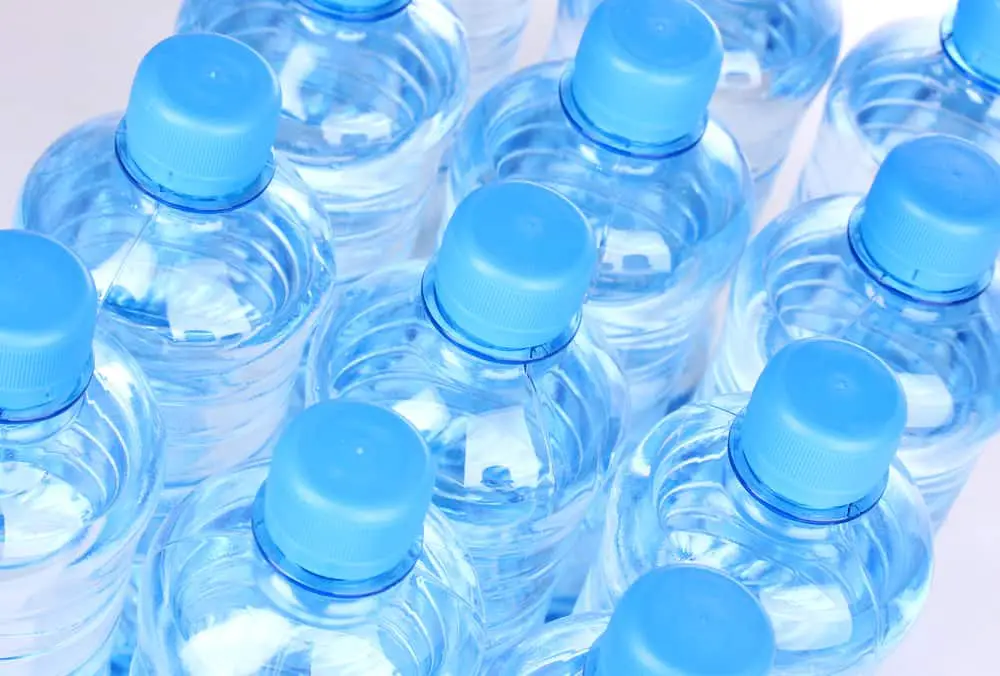Water is a precious commodity and lack of it can make life unbearable.
To keep water in its consumable state, it needs optimal storage conditions.
So, finding suitable storage space and ideal storage conditions is the first step to self-reliance in water.
Therefore, Should You Store Bottled Water In Your Garage?
You can safely store bottled water in your garage. Actually, the garage provides excellent storage space for bottled water since the garage is usually cooler than the rest of the house. More so, the water storage conditions in the garage safeguard the water bottles from direct harmful UV rays from the sun.
However, due to seasonal changes, the temperature in the garage keeps varying.
If you do not have a heating system during winter, the plastic water bottles will freeze. And when the water melts, plastic water bottles can contaminate the water.
Additionally, you should also keep your bottled water away from the garage heating system.
Prolonged heat exposure to the plastic water bottles will cause them to deteriorate faster and make the water in the bottle more acidic.
Storing Bottled Water – Seven Considerations
1. How Much Should You Store?
While most people would like to stockpile vast volumes of water depending on the frequency of your supply, it is recommended that you store at least three days of water for human consumption for every member of your household.
You should also factor in other household needs like cleaning and cooking. The easiest and cheapest way of storing water is in plastic bottles.
2. The Ideal Temperature
The ideal storage condition for the water to last longer is a constant cool temperature (50-70 F).
Avoid freezing conditions as it will make the plastic water bottles deteriorate faster.
Hot conditions will also cause the water to be stale and taste awful.
3. Keep Away From Chemicals
Besides, you should not store chemicals and solvents with your bottled water in the garage.
These substances will contaminate your water. Chemicals and solvents often generate gases and vapors, infiltrating plastic water bottles. This will actually alter the taste of your water.
4. Avoid Sunlight
Store your bottled water away from direct sunlight. Subjecting your water bottles to UV rays will degrade the plastic bottle and raise the water temperature.
5. Have A Rotation
You can practice the bottled water rotation system in your garage for easier management of storage conditions.
When you store new stock of water, take them to the end of the line so that you can only consume the earlier supply.
6. Label Them
Also, label the containers as “drinking water” to avoid unintended use. You can also include the storage date to help you manage your water stock.
7. Beware Of Algae
Algae will grow in a water bottle if opened or exposed to direct sunlight.
If the water in the bottle has all the nutrients to support the growth of algae, then algae will grow in your water bottles.
But this is also dependent on the purification process.
If the water bottling company uses fluoride, algae will not grow in your water bottles even if it is left in the sunlight.
What About The Bottled Water’s Shelf Life?
According to the consumer regulation authorities like Food and Drug Administration (FDA), bottled water is not limited by the shelf life.
As a result, FDA does not ask water bottlers to label expiry dates on bottled water.
Since water is packaged hygienically and sealed in sanitary bottles, you can store your bottled water in the garage for an extended time without worrying about it getting spoiled.
Water bottling companies still place expiry date labels on the water bottles to help distributors and retailers control stock rotation.
So, given the FDA and other relevant regulatory standards in the production and packaging of bottled water, you can seat rest assured that the water is quality and in good taste.
Therefore, you can preserve this great taste by observing excellent storage conditions in your garage.
The Five Bottled Water Types To Store In Your Garage
Although the FDA strictly regulates bottled water processing and packaging, not all water bottles have the necessary certification from the National Sanitation Foundation (NSF) or International Bottled Water Association (IBWA).
So, before you stockpile bottled water, you should ensure that they have NSF or IBWA certification.
Your bottled water could be sourced from:
1. Spring Water


This is a popular form of bottled water. Spring water comes from an underground aquifer.
2. Mineral Water


This water comes from a mineral spring and is rich in minerals like calcium, magnesium, and sulfur compounds.
The FDA regulations require that mineral water (should already have minerals) come from a protected underground water source, and the water should already have the minerals from the source.
3. Well Water
The well water is drawn from a natural aquifer.
4. Artesian Well Water



Artesian water is not different from other groundwater, except it flows to the ground because of pressure through the rocks.
It is, therefore, it is tapped into the rock.
5. Water From The Local Municipality
If you are stockpiling bottled water sourced from the local municipality, you should ensure that they have excellent purification processes.
Final Words
You can safely store bottled water in your garage under safe storage conditions.
Whether you are a prepper or just stockpiling your extra supply of water, you can actually keep the water indefinitely since the actual water doesn’t expire.
What makes the water go bad are external contaminants and poor storage conditions.

